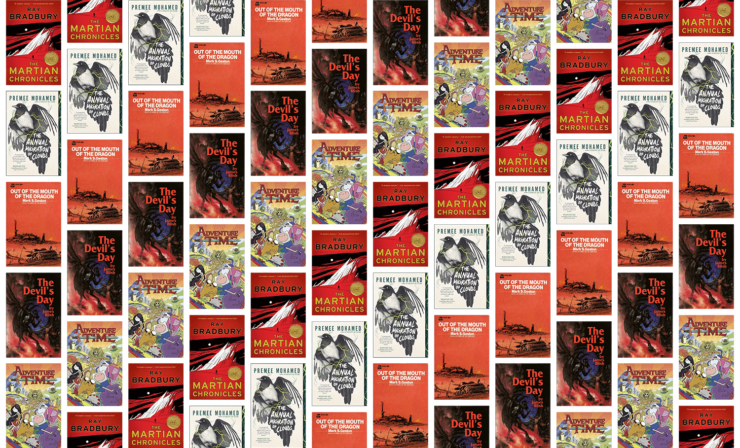Being an inveterate optimist, I have a natural tendency to look on the bright side of even the biggest disasters and feel compelled to inspire similar hope and optimism in the world (or at least, the Twitterverse). We all know that everyone loves an optimist, but for some reason, not everyone seems to find my point of view convincing. Take, for example, a recent discussion of possible outcomes of the various crises currently facing the human species in which I made the following points about our ability to endure…
Humans and their close kin managed to survive for hundreds of thousands of years in Stone Age poverty. Has there ever been an example of humans totally dying out on a continental landmass absent ice sheets to force them out of a region?
(On Twitter, someone suggested the Sahara but the Sahara is home to hundreds of thousands of humans)
I don’t see any reason our impoverished descendants could not scratch out a meagre living amid the ruins of our civilization in a sharply depleted ecosystem for hundreds of thousands, perhaps millions of years. The Lystrosaurus of the post-Anthropocene Mass Extinction!
For reasons that escape me, this did not have the inspirational effect on readers that I intended. However, it’s clear that the essential concept must be inspirational, even if the particular arrangement of words I used failed, because authors like the following five have often toyed with overwhelming catastrophe as a story seed.
“There Will Come Soft Rains” by Ray Bradbury (1950)
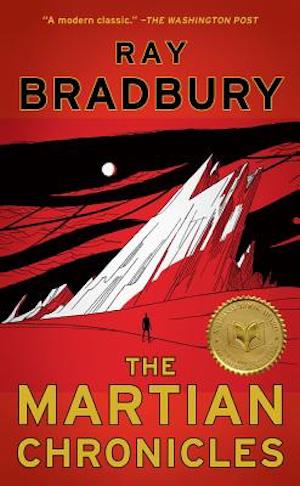
On August 4th, 2026, history develops not necessarily to the advantage of the McClellan family. Their automated house still stands, nearly untouched by the recent unpleasantness (save for the blackened exterior wall facing the former location of Allendale, California). But of the McClellans themselves nothing remains save some reverse silhouettes on the scorched wall.
The house seems to have survived. Yet it too will experience some dire after-effects.
The natural environment of the house seems to have fared better. Well after the nuclear exchange, birds, foxes, cats and no doubt other species as well survive (despite the nearby radioactive glow). Humans too may have survived in refugia far from ground zeroes. Will all be well, eventually?
Bradbury was inspired by a 1918 poem by Sara Teasdale, also titled “There Will Come Soft Rains.” The poem was published near the end of World War I; it suggests that nature would not miss humans.
Bradbury seems to have been of two minds as to whether or not humans would survive atomic catastrophe. The first version of his story, published in Colliers magazine in 1950, is unrelentingly grim. He later included the story in his collection The Martian Chronicles. There, the story is surrounded by other tales of human survival after the nuclear exchange.
The Devil’s Day by James Blish (1980)
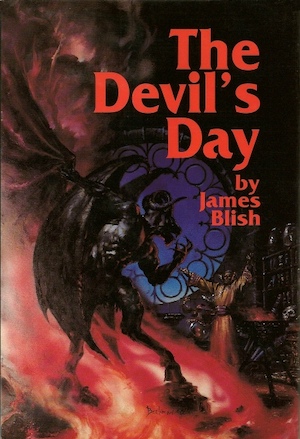
Convinced that medieval accounts of demon summoning are factual, arms dealer Baines hires black magician Theron Ware to prove Baines’ thesis by summoning all the demons of Hell to Earth for one night. Ware succeeds beyond Baines’ wildest nightmares. Having drawn Hell’s legions to Earth, Ware discovers that he cannot send them back. As the demons helpfully inform the humans upon whom they intend to descend, God is dead and the infernal forces have triumphed.
One might well expect the story to end at that point, but Blish continues his narrative past doomsday. The Last Trump has sounded, Armageddon has come and gone. However, even apocalypse leaves something in its wake: consequences. Humans and demonkind may think they know what comes next. As they discover, they are ignorant of certain important facts on which the ultimate outcome depends.
Out of the Mouth of the Dragon by Mark S. Geston (1969)
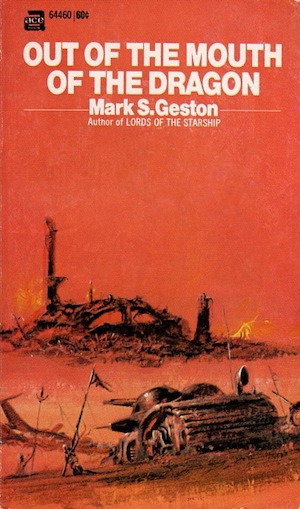
Amon VanRoarke lives in a glass-half-full world. It has been wracked by many apocalypses. Yet, as terrible as each apocalypse has been, none of them managed to completely expunge either humanity or the world on which humans live. What remains: wastelands in which humanity struggles to survive.
Another apocalypse looms. VanRoarke accepts his part in the great scheme of things, which is to undergo a nasty personal transformation. Will the next apocalypse finally end the miseries of human existence? VanRoarke should be so lucky.
Adventure Time, TV series created by Pendleton Ward (2010–2018)
In retrospect, the harmless-sounding Mushroom War was something of a misstep for humanity. While humanity did not quite manage to exterminate itself, the only human known to live in the Land of Ooo is series co-protagonist Finn. Finn’s boisterous pursuit of adventure with his best pal, shapeshifter Jake, casts doubt on how long the boy will elude death.
However, all is not as grim as it might sound. The Land of Ooo abounds in intelligent life of all forms, from talking candy to musically inclined demon vampires, from giants to malevolent (but adorable) penguins. Humanity may be down to its last survivor (or not), but intelligence and some remnant of our cultures survive.
The Annual Migration of Clouds by Premee Mohamed (2021)
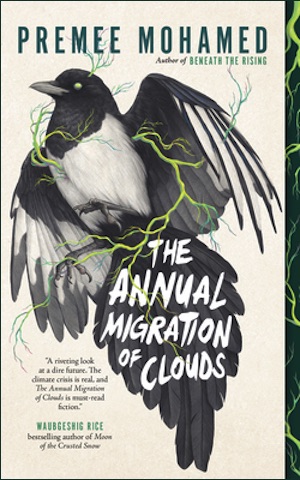
Thanks to decades of hard work, humans have greatly simplified and transformed a needlessly complicated but hospitable world. No more will children have to wonder what they will do as adults; they know that they will scrabble for survival for as long as it takes one of Earth’s increasingly frequent calamities to kill them. If they work hard and are lucky, they may leave behind enough descendants to continue the species.
But there are still a few opportunities for a life that is more than simple survival. Reid Graham is granted a rare chance to attend Howse University, one of the few remaining centers of advanced research. There are, however, some minor catches: Reid will have to demonstrate her ingenuity by crossing the forbidding wilderness between her town and distant Howse, all on her own. Moreover, her community doesn’t want her to leave: they need all their able-bodied members. Nor does her family want to lose her—if Reid leaves, she may never see her mother, her only living relative, again.
Should she stay or should she go now?
***
No doubt many readers have their own favourite example (such as the uplifting final episode of Dinosaurs, which I would have mentioned had I ever seen it). Comments are, as ever, below.
In the words of fanfiction author Musty181, prolific book reviewer and perennial Darwin Award nominee James Davis Nicoll “looks like a default mii with glasses.” His work has appeared in Publishers Weekly and Romantic Times as well as on his own websites, James Nicoll Reviews (where he is assisted by editor Karen Lofstrom and web person Adrienne L. Travis) and the 2021 and 2022 Aurora Award finalist Young People Read Old SFF (where he is assisted by web person Adrienne L. Travis). He is a four-time finalist for the Best Fan Writer Hugo Award, and is surprisingly flammable.










